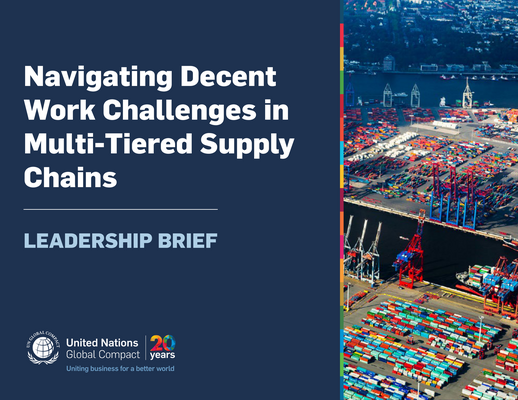Summary
This document examines how companies can navigate complex multi-tiered supply chains and their associated challenges as part of their efforts to advance decent work in their global supply chains. While multi-tier supply chains have the advantage of driving efficiency, reducing planning cycle lead times and reducing possible business disruptions, they also increase the risk of causing or contributing to human rights impacts and decent work deficits, particularly in the lower tiers of the chain. This is exacerbated in a crisis situation such as a pandemic, where workers’ rights and conditions may be compromised and income threatened as a result of order cancellations, factory shut-downs, or layoffs. This report seeks to guide multinational enterprises in reducing global supply chain vulnerabilities and provides proactive measures companies can take and best practice examples to draw inspiration from.

We have sent you the download link, please check your inbox.
Download againSomething went wrong when trying to download this file.
Try again